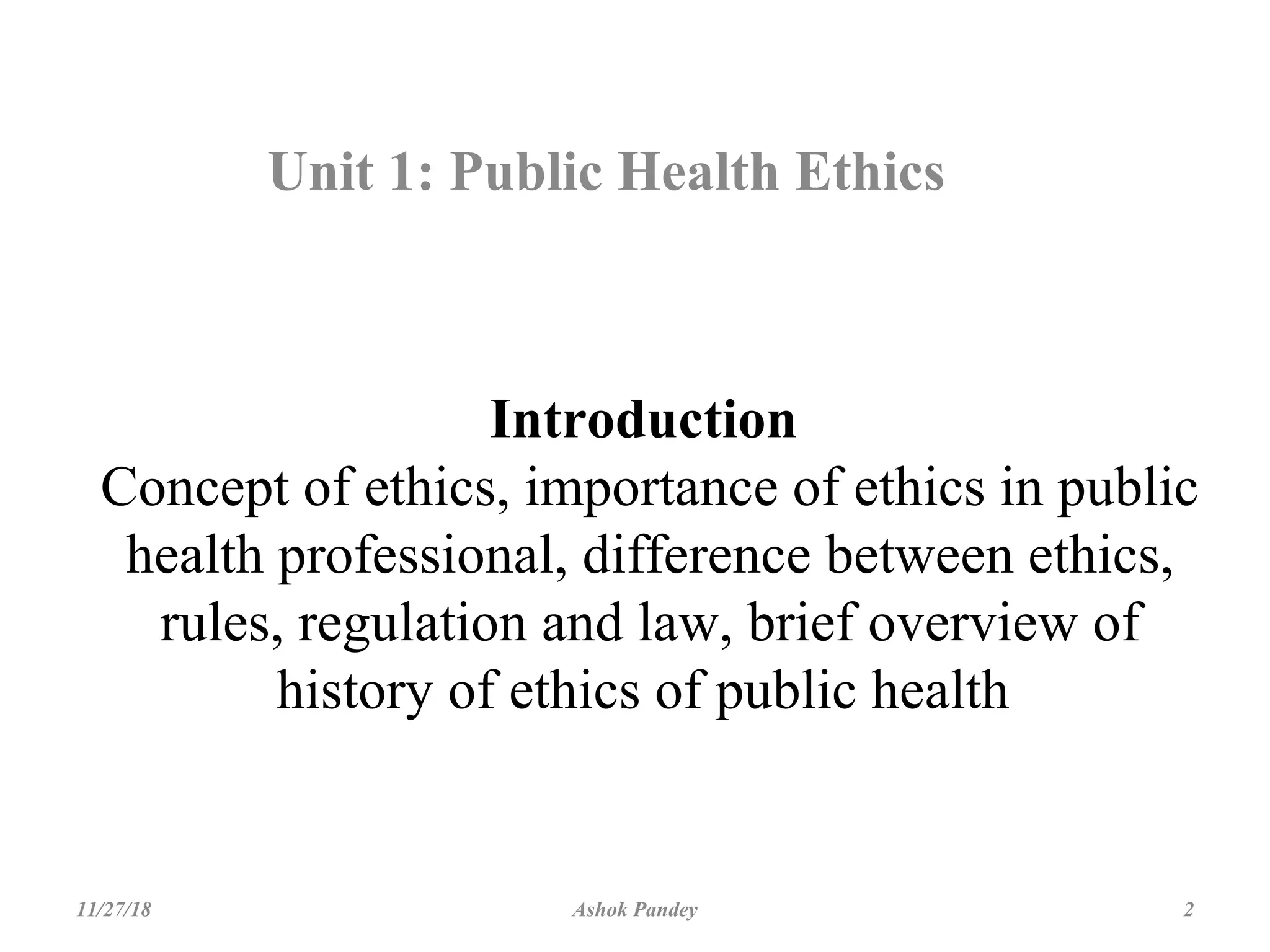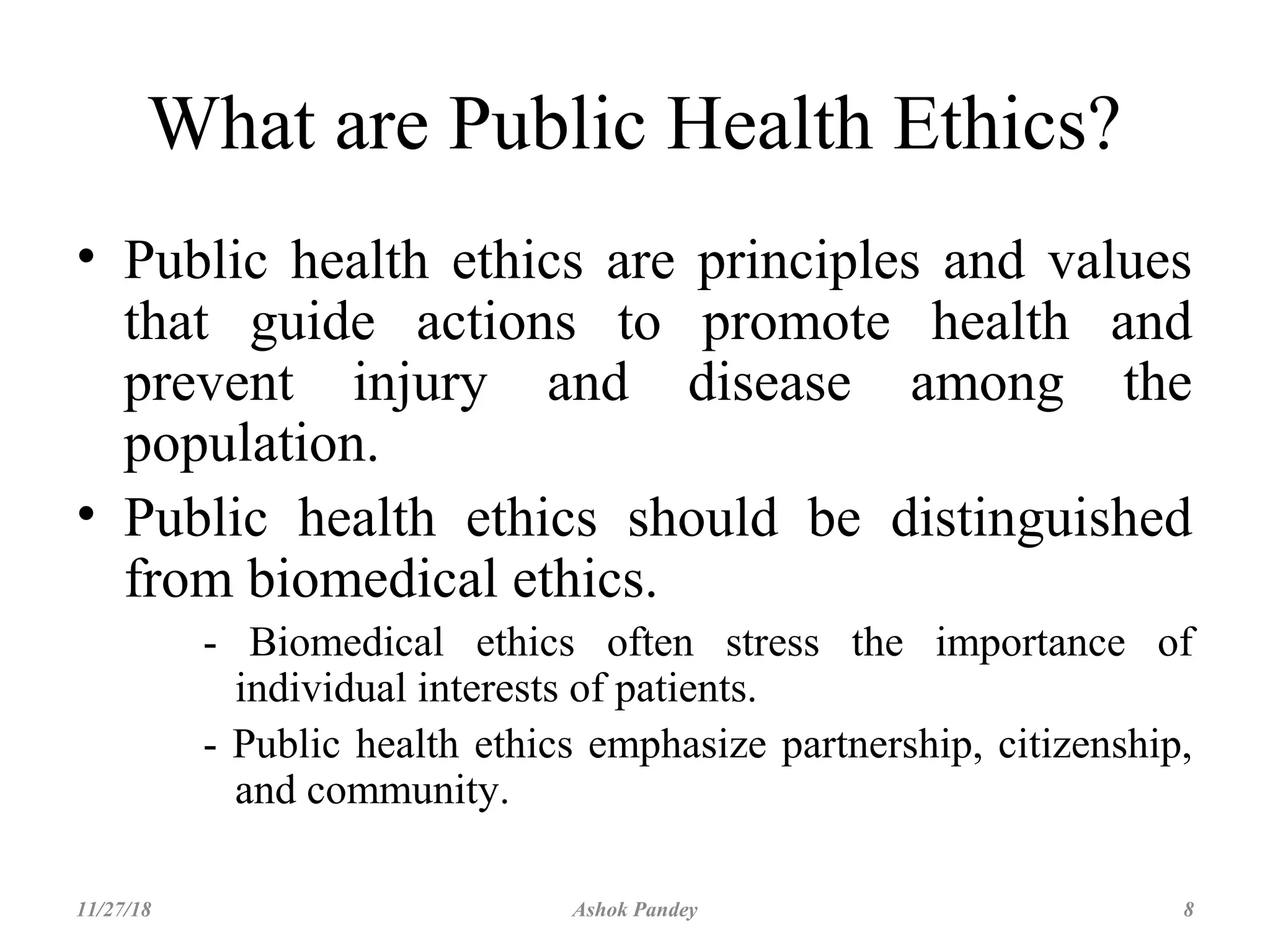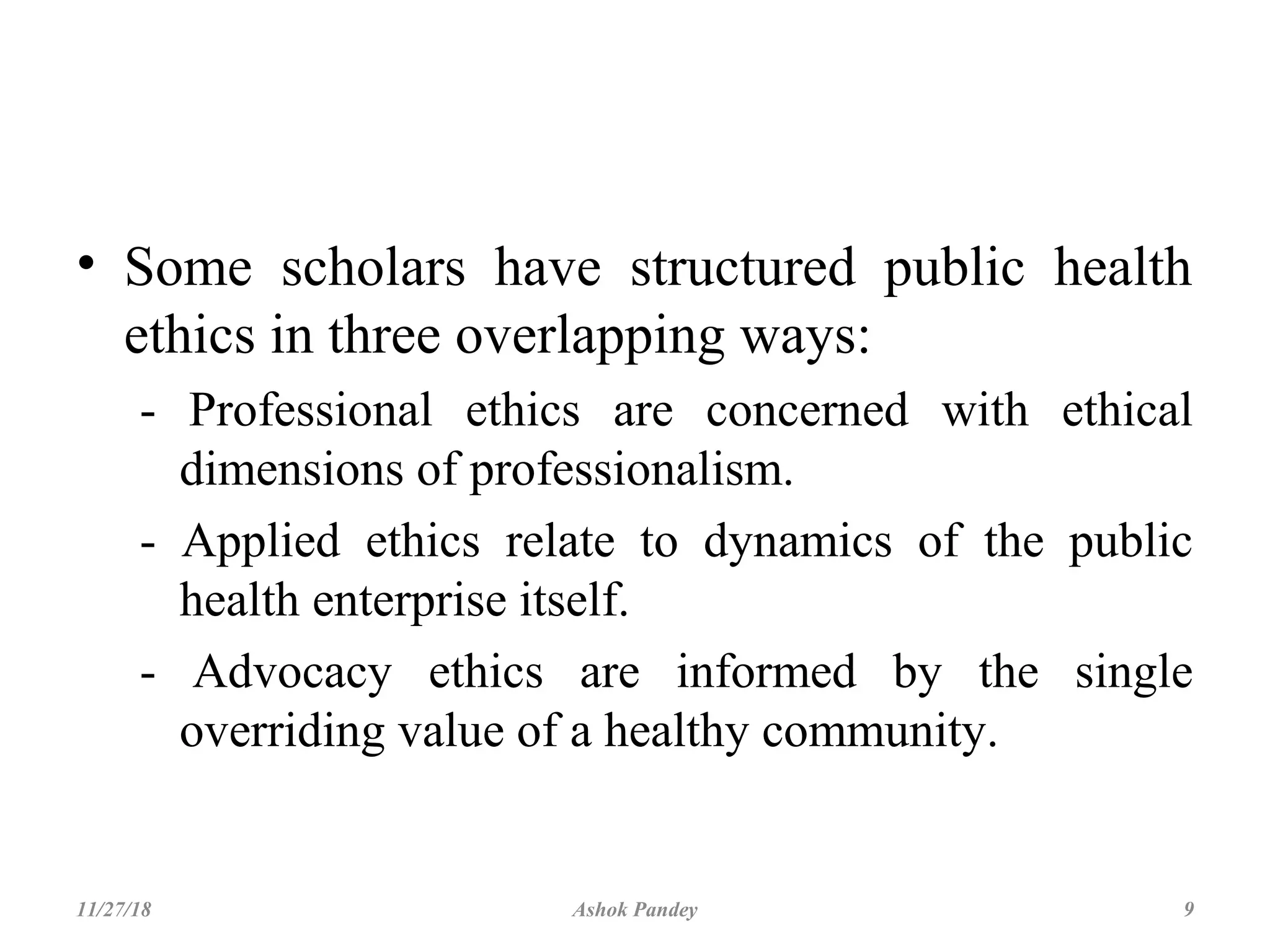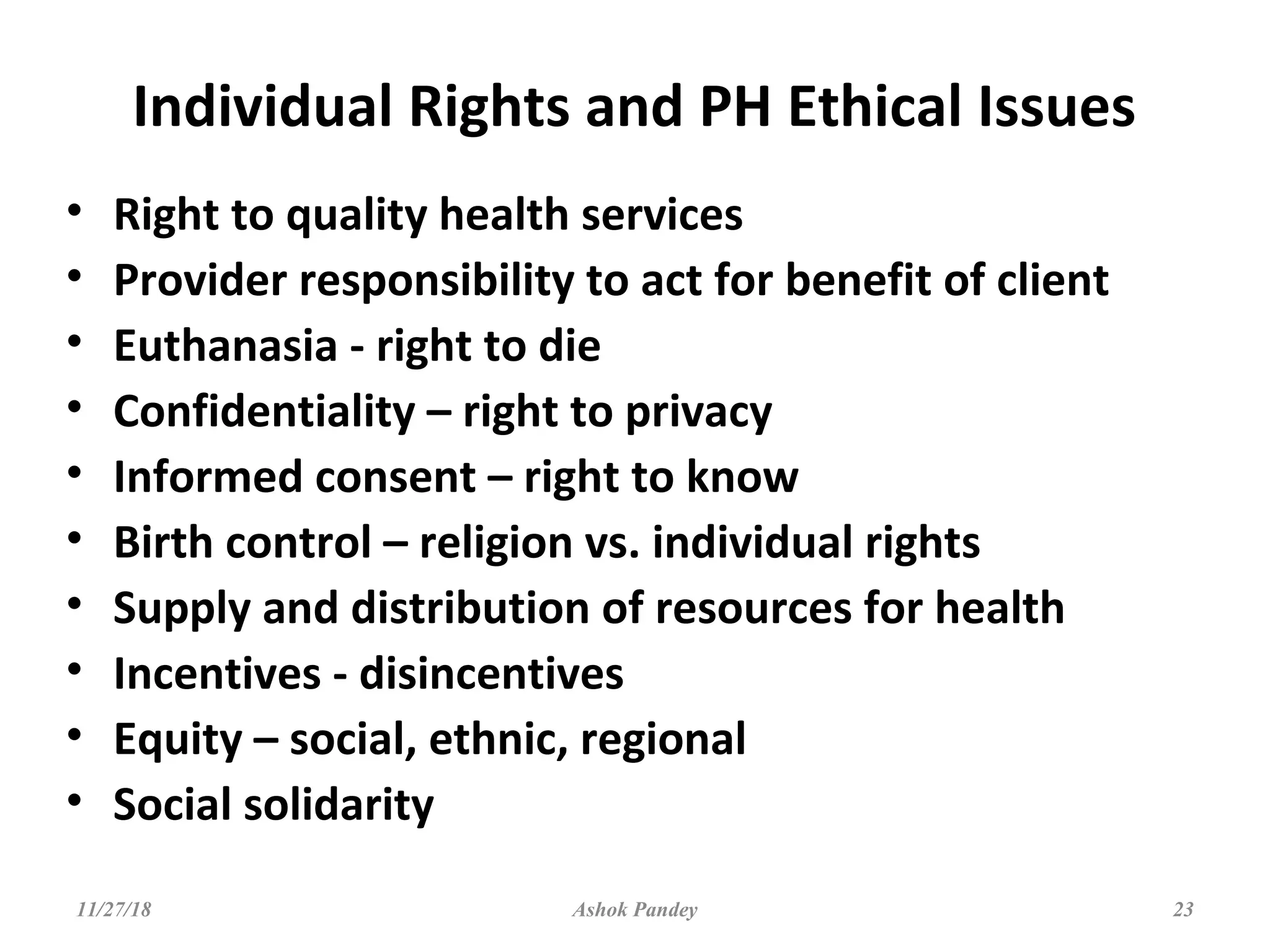The document discusses the concept of ethics in public health, emphasizing its importance and the differences from laws and regulations. It outlines key ethical issues faced in public health, including individual versus community rights, responsibility, and the role of ethics in research. Additionally, it reviews historical cases of ethical violations in medical research and the evolution of ethical standards in public health practice.
































































![What is a virtue?
• Aristotle: a virtue is a state of character by which you
‘stand well’ in relation to your desires, emotions and
choices:
– ‘to feel [desires and emotions] at the right times, with
reference to the right objects, towards the right people, with
the right motive, and in the right way’
• Virtues are traits that are necessary for ‘living well’.
11/27/18 65Ashok Pandey](https://image.slidesharecdn.com/publichealthethics-181127141650/75/Public-health-ethics-65-2048.jpg)


















































































































